
下载亿题库APP
联系电话:400-660-1360

下载亿题库APP
联系电话:400-660-1360

请谨慎保管和记忆你的密码,以免泄露和丢失

请谨慎保管和记忆你的密码,以免泄露和丢失
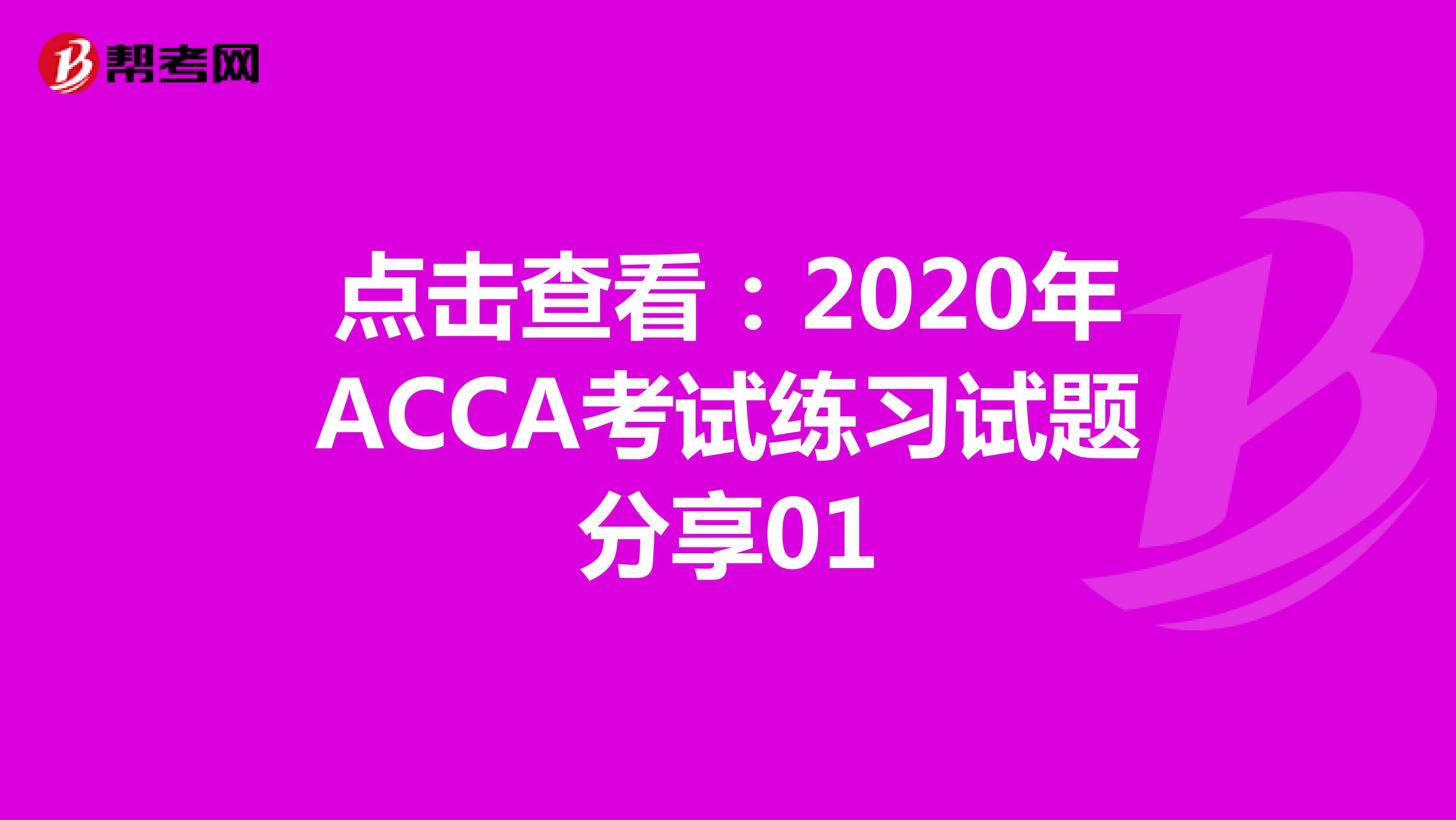
各位小伙伴大家好!想要报考ACCA考试的小伙伴请注意啦,帮考网为大家带来了考试练习题供大家练习,帮助大家熟悉题型和巩固知识。
Question:
In the context of payment for shares issued by a company, explain the meaning and legal effect of the following:
(a)capital maintenance;
(b)issuing shares at a premium;
(c)issuing shares at a discount.
Answer:
(a)Shareholders in limited liability companies enjoy the benefit of limited liability and usually cannot be required to pay more than the value of the shares they take in their company. However, that privilege is only extended to them on the basis that they fully subscribe to the company‘s capital. In turn, that capital is seen as a fund against which creditors can claim in the event of a dispute. Capital maintenance refers to the way in which the capital fund of limited liability companies can be used and, most essentially, reduced. The fundamental rule is that payments may not be improperly made out of capital to the detriment of the company‘s creditors. To that end, company law lays out rules as to what may be considered proper payment from capital and, in particular, establishes clear rules relating to the payment of dividends and the ways in which capital can be reduced.
(b)It is possible, and not at all uncommon, for a company to require prospective subscribers to pay more than the nominal value of the shares they subscribe for. This is especially the case when the market value of the existing shares are trading at above the nominal value. In such circumstances the shares are said to be issued at a premium, the premium being the value received over and above the nominal value of the shares. Section 610 CA 2006 provides that any such premium received must be placed in a share premium account. The premium obtained is regarded as equivalent to capital and, as such, there are limitations on how the fund can be used. Section 610 provides that the share premium account can be used for the following limited purposes:
(i)to write off the expenses, commission or discount incurred in any issue of the shares in question;
(ii)to pay up bonus shares to be allotted as fully paid to members.
Section 687 also allows for the share premium account to be used to finance the payment due for any premium due on the redemption of redeemable shares.
Applying the rules relating to capital maintenance, it follows that what the share premium account cannot be used for is to pay dividends to the shareholders. The rules relating to share premiums apply whether the issue is for cash or otherwise and so a share premium account can arise where shares are issued in exchange for property which is worth more than the par value of the shares (Shearer v Bercain Ltd (1980)). In the light of that case, relief from the strict application of the rules relating to premium was introduced in the case of certain company group reconstructions (s.611 CA 2006) and company mergers (s.612 CA 2006).
(c)It is a long-established rule that companies are not permitted to issue shares for a consideration which is less than the nominal value of the shares together with any premium due. The strictness of this rule may be seen inOoregum Gold Mining Co of India v Roper (1892). In that case the shares in the company, although nominally £1, were trading at 12·5p. In an honest attempt to refinance the company, new £1 preference shares were issued and credited with 75p already paid (note the purchasers of the shares were actually paying twice the market value of the ordinary shares). When, however, the company subsequently went into insolvent liquidation, the holders of the new shares were required to pay a further 75p. This common law rule is now given statutory effect in s.580 CA 2006. If a company does enter into a contract to issue shares at a discount, it will not be able to enforce this against the proposed allottee. However, anyone who takes shares without paying the full value, plus any premium due, is liable to pay the amount of the discount as unpaid share capital, together with interest at 5% (s.580(2)/CA 2006). Also any subsequent holder of such a share who was aware of the original underpayment will be liable to make good the shortfall (s.588 CA 2006).
好了,今天的分享就到这里结束啦!大家今天是否有所收获呢?如需了解更多相关内容,请关注帮考网!
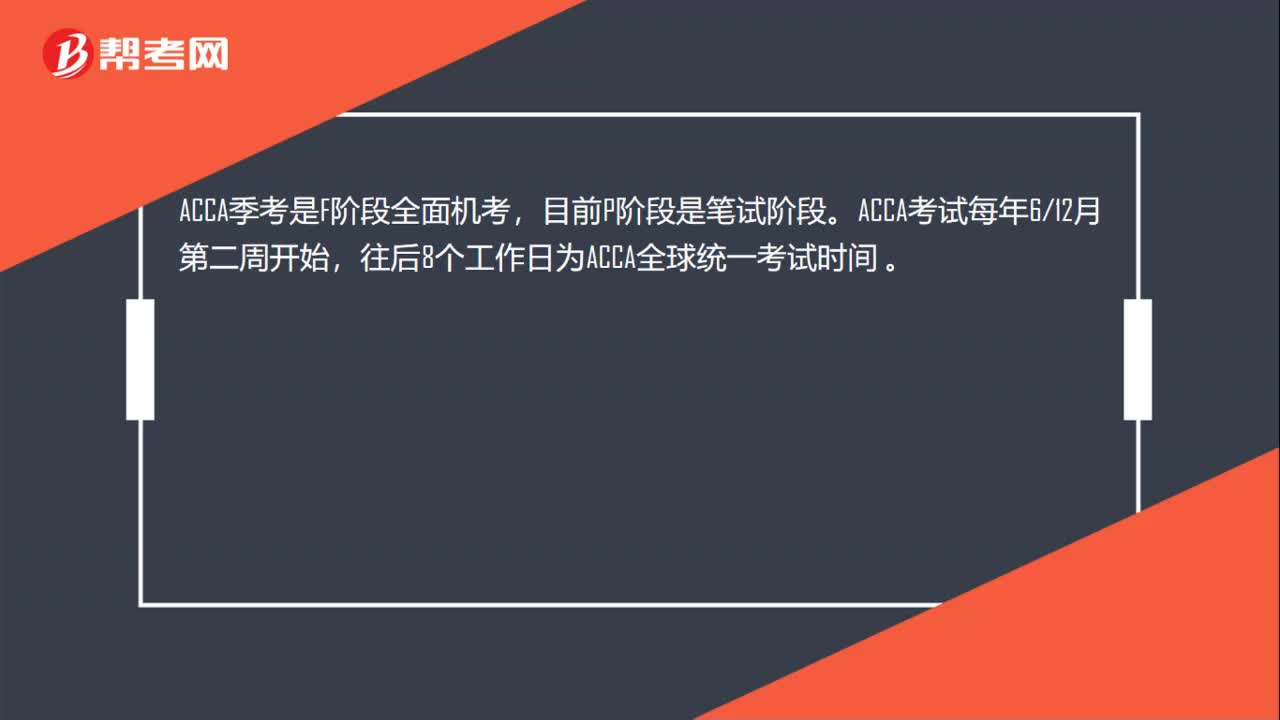 25
25ACCA每年的考试时间是什么时候?:ACCA每年的考试时间是什么时候?ACCA季考是F阶段全面机考,目前P阶段是笔试阶段。ACCA考试每年612月第二周开始,往后8个工作日为ACCA全球统一考试时间。
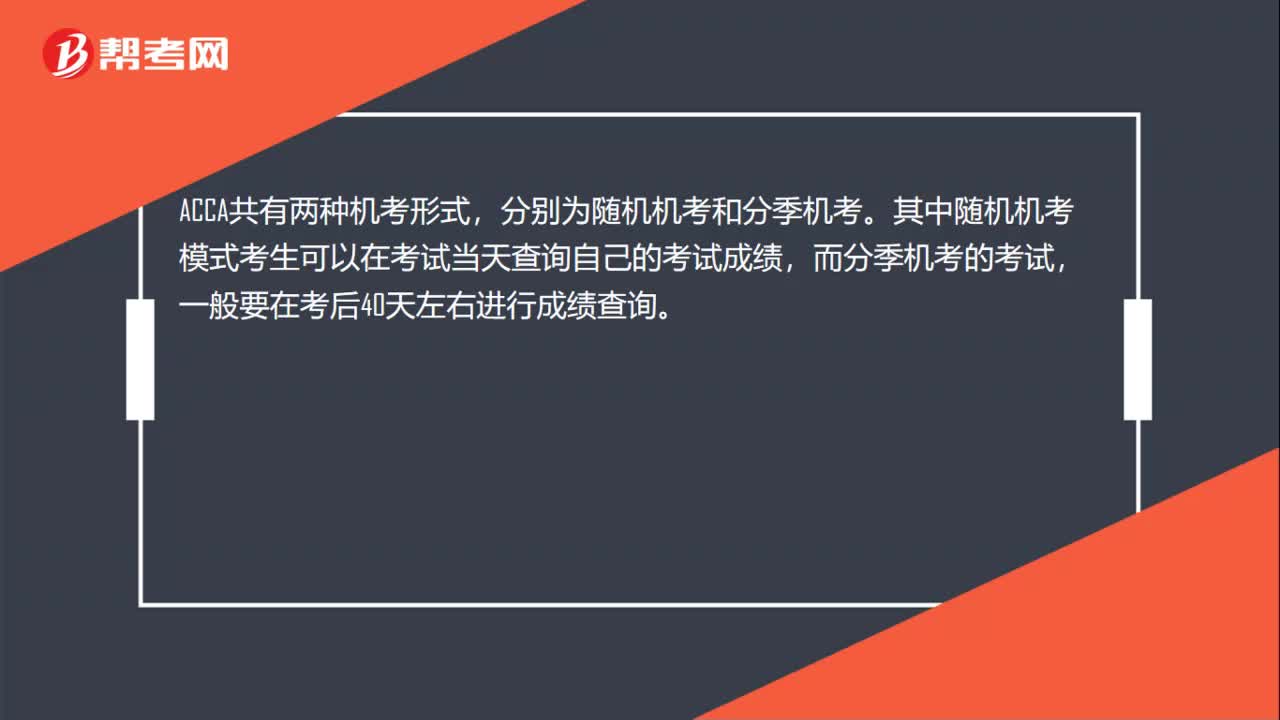 25
25ACCA考试之后多久可以查询成绩?:ACCA考试之后多久可以查询成绩?ACCA共有两种机考形式,分别为随机机考和分季机考。其中随机机考模式考生可以在考试当天查询自己的考试成绩,而分季机考的考试,一般要在考后40天左右进行成绩查询。
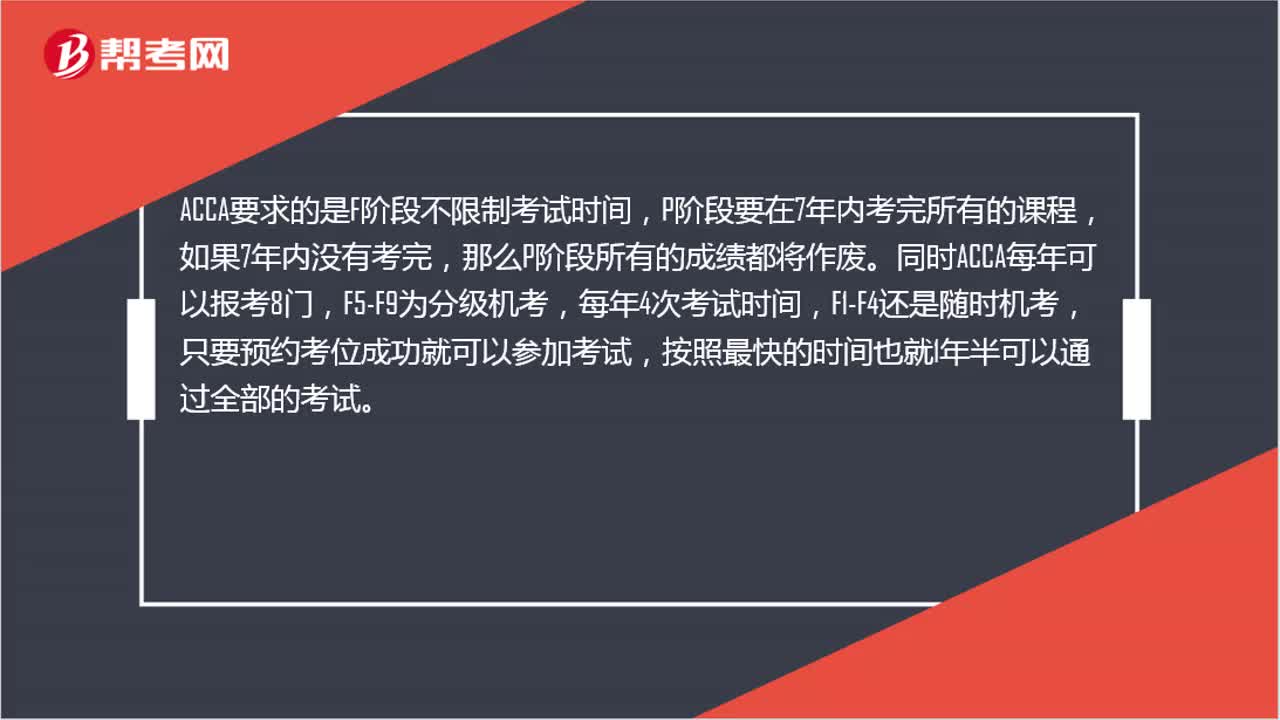 42
42ACCA考试需要几年才能拿到证书?:ACCA考试需要几年才能拿到证书?ACCA要求的是F阶段不限制考试时间,P阶段要在7年内考完所有的课程,如果7年内没有考完,那么P阶段所有的成绩都将作废。同时ACCA每年可以报考8门,F5-F9为分级机考,每年4次考试时间,F1-F4还是随时机考,只要预约考位成功就可以参加考试,按照最快的时间也就1年半可以通过全部的考试。
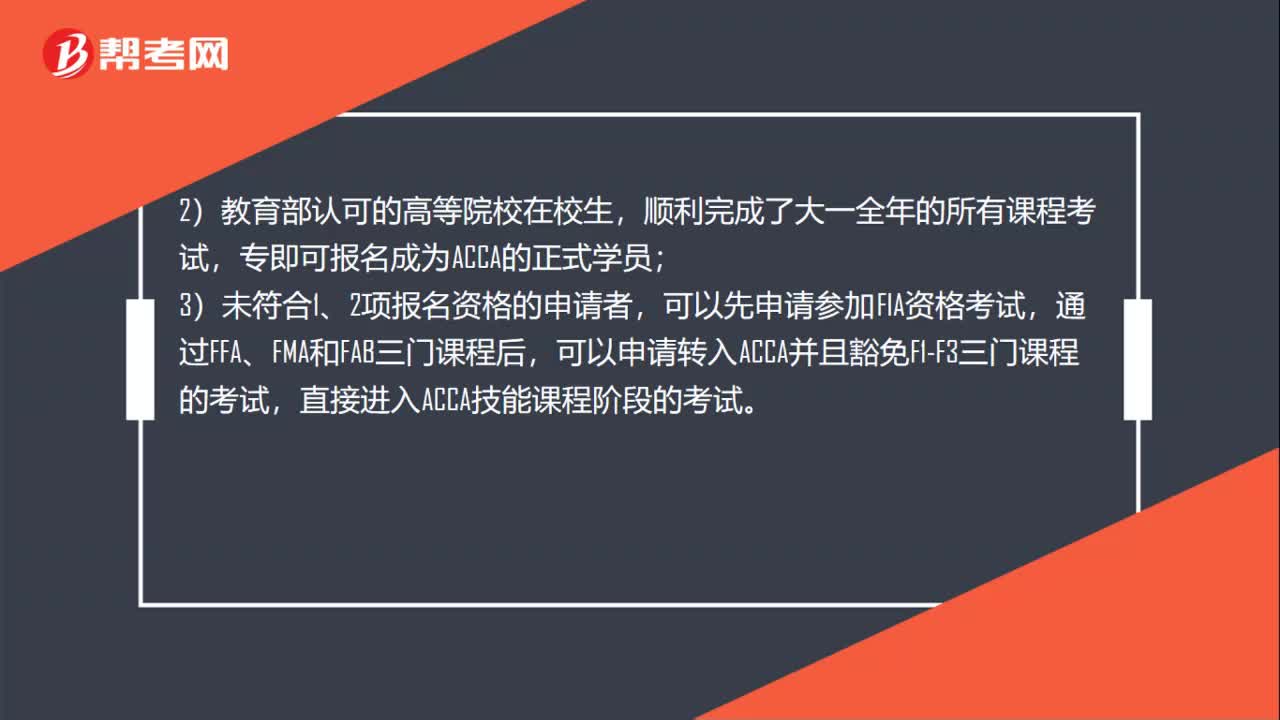 01:03
01:032020-06-04
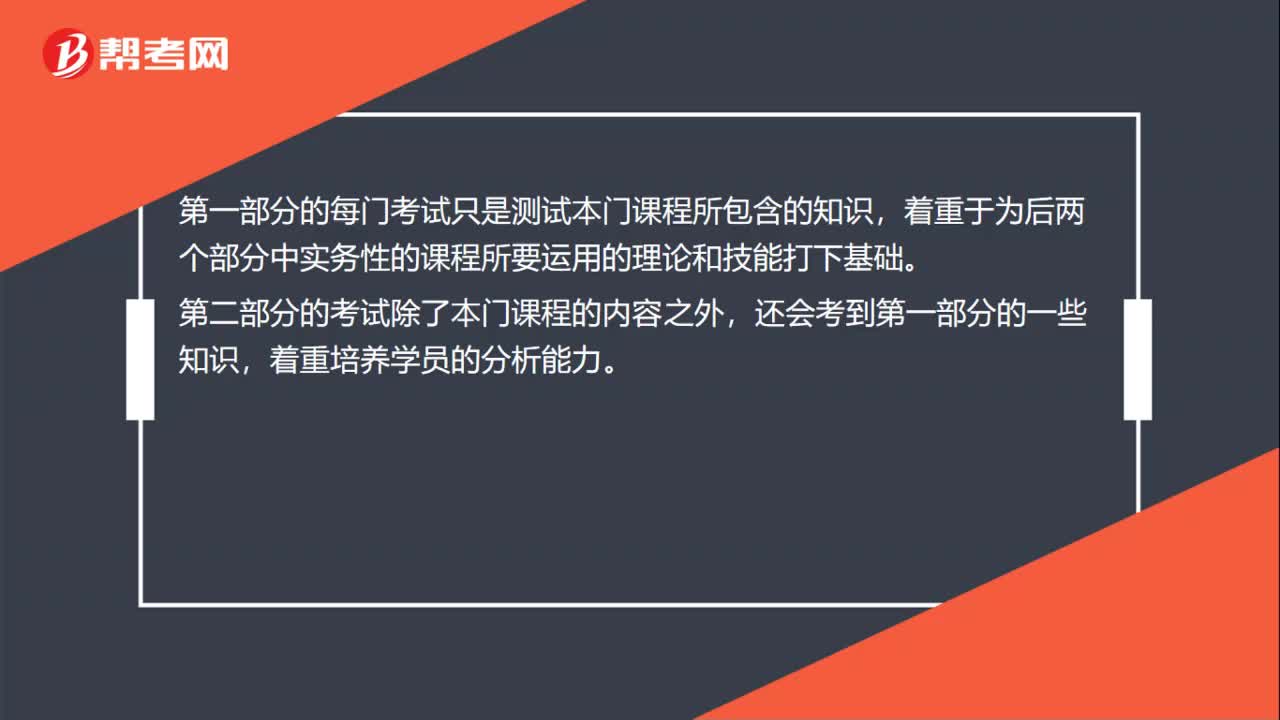 01:20
01:202020-06-04
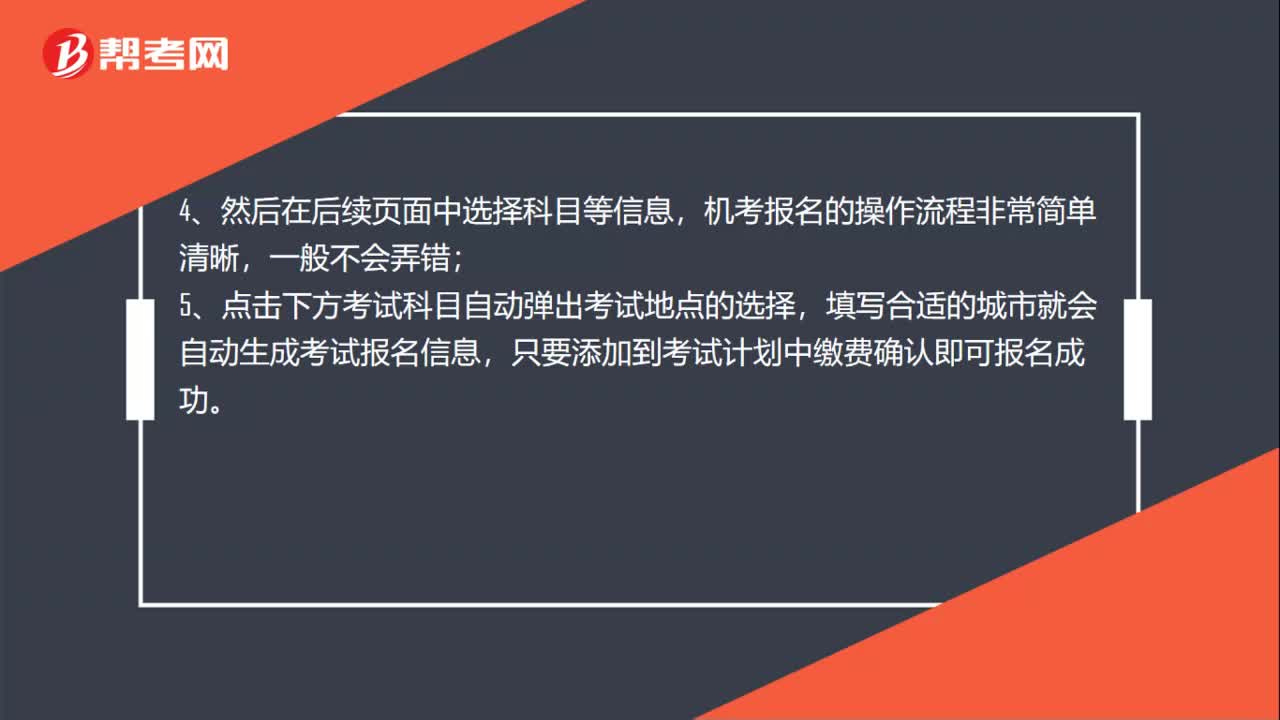 01:21
01:212020-06-04
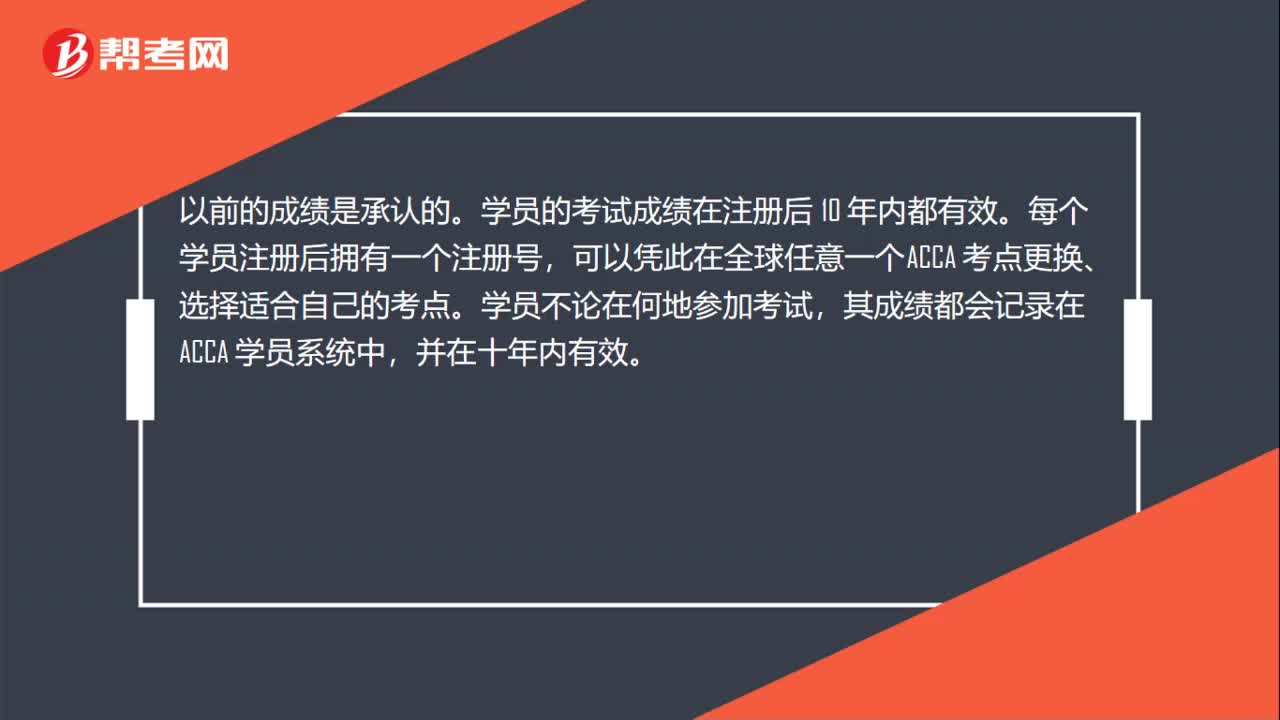 00:34
00:342020-06-04
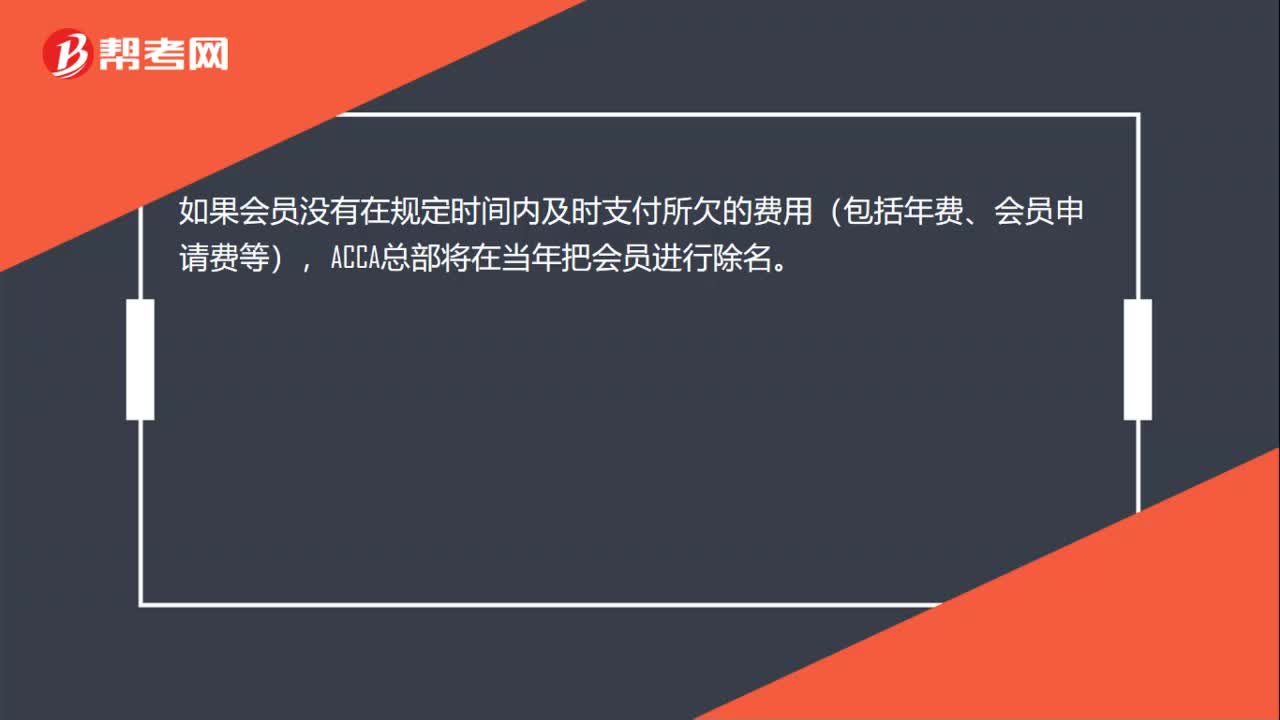 00:19
00:192020-06-04

微信扫码关注公众号
获取更多考试热门资料